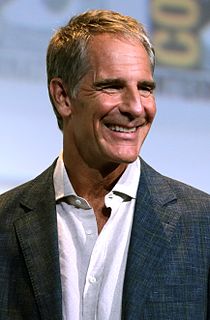A Quote by Pope John Paul II
Born and nurtured when the human being first asked questions about the reason for things and their purpose, philosophy shows in different modes and forms that the desire for truth is part of human nature itself.
Related Quotes
Even in a jungle, lovely flowers will spring up here and there, such being the fecundity of nature, and however badly our pastors and masters run our society, however much they pull to pieces that which they claim to be keeping intact, nature remains fecund, human beings are born with human traits, sometimes human strength outweighs human weakness, and human grace shows itself amid human ugliness. ‘In the bloodiest times,’ as our play has it, ‘there are kind people.’
I'll impose upon you the same arrogance that was imposed on me, and on my mother, my grandmother, my grandmother's mother: all the way back to the first human born of another human being, whether he liked it or not. Probably, if he or she had been allowed to choose, he would have been frightened and answered: No, I don't want to be born. But no one asked their opinion, and so they were born and lived and died after giving birth to another human being who was not asked to choose, and that one did likewise, for millions of years, right down to us.
One can delineate the domain of philosophy however one likes, but in its search for truth, philosophy is always concerned with human existence. Authentic philosophizing refuses to remain at the stage of knowledge […]. Care for human existence and its truth makes philosophy a 'practical science' in the deepest sense, and it also leads philosophy—and this is the crucial point—into the concrete distress of human existence.
As does every young man studying philosophy, I naturally asked myself questions about the truth of all this, and about the meaning of freedom, predestination, and liberty of choice and so on. But to have asked questions of yourself about it, I think is not too important. Let's say - I remain - I remained a believer.
I think, questions about what it means to respect nature become very important because just as in human society, for example, part of what it is for me to live a good life as a human being in a human society is to have respect for others around me. Now, that respect, to some extent, can be thought of as being grounded in the rights and interest of others but it also has to do with the stance that I take in the world and what it is that provides meaning and significance in my own life and I think there are similar ideas of respect for nature that apply as well.
All great art is by its very essence in conflict with the society with which it exists. It expresses the truth about the existence regardless of whether this truth serves or hinders the survival purpose of a given society. All great art is revolutionary because it touches upon the reality of man and questions the reality of the various transitory forms of human society.
I also came to see that liberalism's superficial optimism concerning human nature caused it to overlook the fact that reason is darkened by sin. The more I thought about human nature the more I saw how our tragic inclination for sin causes us to use our minds to rationalize our actions. Liberalism failed to see that reason by itself is little more than an instrument to justify man's defensive ways of thinking. Reason, devoid of the purifying power of faith, can never free itself from distortions and rationalizations.








































